“Burundi withdraws from the International Criminal Court for national sovereignty”, says the government. For the opposition, the latter fears being prosecuted for several massive violations.
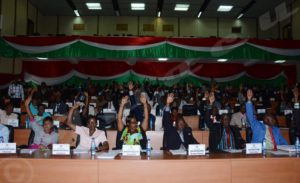
MPs voted for the bill by a huge majority
94 votes for, 2 against from André Ndayizamba and Fabien Baciryanino, both from UPRONA party and 14 abstentions, including that of Agathon Rwasa, the first vice president of the National Assembly. On 12 October, the Lower Chamber of the Parliament voted by a huge majority the withdrawal of Burundi from the Rome Statute establishing the
International Criminal Court. Two hours later, the text was adopted unanimously by the Senate, 37 votes to 37.
The motivations of the bill were presented to the National Assembly by Justice Minister, Aimée Laurentine Kanyana. “ICC has become an instrument of pressure on the governments of poor countries or a way to destabilize them. Since ICC was established, only nationals from African countries were brought before the Court as if the entire world were not concerned about the crimes perpetrated”.
For the minister, it is no secret that the initiation of investigations against the leaders of some countries is under the influence of great world powers, some of which have not even ratified the Rome Statute: “what calls into question the independence of the ICC prosecutor and the court itself. Burundi believes it is time for African countries to withdraw from this statute. Burundi takes its responsibility as a nation to preserve its sovereignty and withdraw from the Rome Statute. ”
A Court at the service of the great world powers
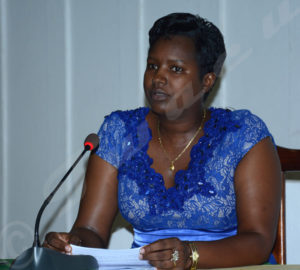
Aimée Laurentine Kanyana: “Burundi says it’s time for African countries to withdraw from the Rome Statute establishing ICC”
The minister of justice repeated the government’s statement of the day before explaining the decision. According to her, the fact is that some world powers- the initiators of the project of the court’s creation urged other African countries to ratify the court’s statute using even pressure, while they did not do so to protect their potential criminals. For Burundi government, the court is funded by EU at 70%. The statement condemns the silence of ICC and the international community, especially EU vis-à- vis the demonstrations funded by some western countries that turned into acts of terrorism and led to a coup attempt. «However, the security forces and officials of state institutions have become their prime targets, while the perpetrators of these atrocities were rewarded with funding and asylums in these countries,” condemns the release.
First African country to leave ICC…
Bujumbura believes that the ICC Prosecutor’s decision to intervene in the ongoing political conflict in Burundi, under the pressure of its funders notably EU, by starting a preliminary examination, constitutes a serious and flagrant violation of both the national security and sovereignty. Indeed, she says, to conduct the preliminary examination encourages potentially negative forces and their partners and contributes to the resumption of violence.
“Consequently, the government considers that maintaining Burundi as part of the Rome Statute of the International Criminal Court cannot be justified, given that the Statute isn’t respected anymore and especially that the countries that have not ratified it are in control of its operation. » Burundi becomes the first African country to withdraw from ICC.
A victory for Burundi government as it has taken a series of decisions in recent days to “defend the national independence against an international conspiracy that wants to bring down the institutions elected by the people”.
The bill was adopted by the Council of Ministers a week ago. The decision was taken after the publication of the UN expert damning report on grave violations of human rights by state organs on 20 September. These UN experts prepared a list of 12 individuals deemed responsible for serious crimes committed with impunity throughout the country, and which may fall under ICC jurisdiction. The report also warned against possible crimes against humanity and a serious danger of genocide.
Rejection and decision making…
The UN Human Rights Council decided to create an international commission of inquiry into the atrocities committed in Burundi via the A / HRC / 33 / L.31. Government officials say the resolution is non-applicable to Burundi.
On 25 April 2016, the ICC prosecutor herself launched a preliminary investigation particularly on murder, torture and rape perpetrated in Burundi which Bujumbura decided to block.
Even before the adoption of this resolution, demonstrations were held in Bujumbura, for the closure of the UN Office of the High Commissioner for Human Rights in Burundi. On 11 October, a government statement announced the suspension of all cooperation and collaboration with this office, accused of complicity in preparing the United Nations Independent Investigation report on Burundi-EINUB. The same statement declared persona non grata in Burundi the three experts that produced the report.
Reactions
CNARED: a call for international solidarity
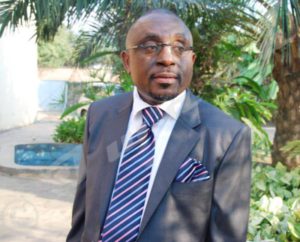
The platform of the opposition CNARED called on the international community to intervene to “save Burundian people.” For Pancrace Cimpaye, the spokesman of CNARED, this withdrawal is the proof that President Pierre Nkurunziza acknowledges that he is responsible for crimes against humanity denounced by the recent UN investigation.
“This withdrawal is a sign of fear of being prosecuted, he denounces. But what Nkurunziza and his regime must know is that the withdrawal from the International Criminal Court does not give them permission to kill the people of Burundi. They need to know that the lawsuits and ongoing investigations, must continue. “He appeals to the international community and UN Security Council to” take the necessary measures to protect the people of Burundi because all these decisions recently taken show that the people of Burundi are in danger of extermination. ”
Léonce Ngendakumana: “They are afraid!”
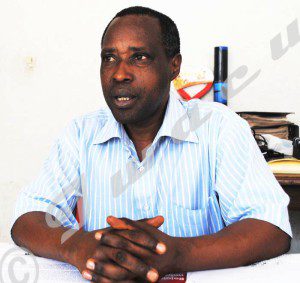 For the vice president of FRODEBU, some leaders are afraid of being arrested if they do not quickly exit ICC. Moreover, he recalls the interventions of some MPs. “One asked what would happen if the President of the Republic, National Assembly or the Senate were arrested. That is the reason why the government equally refused to set up the High Court of Justice in charge of judging some higher authorities of the country, including the head of state.
For the vice president of FRODEBU, some leaders are afraid of being arrested if they do not quickly exit ICC. Moreover, he recalls the interventions of some MPs. “One asked what would happen if the President of the Republic, National Assembly or the Senate were arrested. That is the reason why the government equally refused to set up the High Court of Justice in charge of judging some higher authorities of the country, including the head of state.
“For Ngendakumana, they clearly fear for the arrest of senior officials of the government and not the opponents accused of staging demonstrations or trying to overthrow the institutions.”However, ICC said it would investigate all the persons accused of abuses. ”
Pasteur Habimana: “Burundi is not weak!”
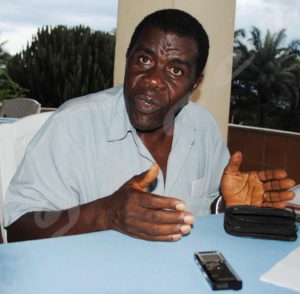 “It’s a big decision Burundi has made to withdraw from the Rome Statute and ICC, because of its scorn and injustice” reacts FNL leader Iragi rya Gahutu Remy, a party that has pledged allegiance to power. He added that the government should even review other international treaties it has ratified as they are, according to him, tools to oppress developing countries.
“It’s a big decision Burundi has made to withdraw from the Rome Statute and ICC, because of its scorn and injustice” reacts FNL leader Iragi rya Gahutu Remy, a party that has pledged allegiance to power. He added that the government should even review other international treaties it has ratified as they are, according to him, tools to oppress developing countries.
“They should never consider us as weak. Every country has its place within the UN. Even the great powers rose from nothing, it’s what the Burundian government is trying to do and they want to stop us, “insists Mr. Habimana. For him, this demonstrates a hidden agenda of the West to subdue any leader capable of defending his country and people.
“Such agendas murdered Rwagasore, Ndadaye and want the same fate for Nkurunziza.”This former right hand man of Agathon Rwasa also warns the UN. “If it continues to produce false reports on Burundi, the government must react energetically.”To Pasteur Habimana, there is no doubt:” all these plans seek nothing but to monopolize our rich subsoil!
Ban Ki Moon: “We are very much disappointed!”
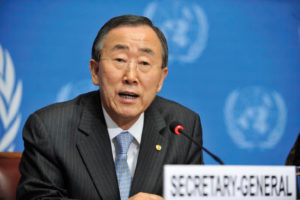
Secretary-General Ban Ki-moon speaks during the press conference of the Durban Review Conference.
The Secretary General of the UN Ban Ki-Moon urged on 12 October Burundi government to review its decision to suspend its collaboration with the UN High Commissioner for Human Rights. “We are very much disappointed to hear the government’s decision to discontinue its cooperation with the office of the UN High Commissioner for Human Rights in Bujumbura,” said Stephane Dujarric, spokesman for the United Nations. The office, which employs 51 people, will remain open in Burundi “pending further discussions,” he said.
The UN also reminded the Bujumbura authorities that they must continue to cooperate with investigations by the International Criminal Court, despite the adoption on Wednesday of a bill providing for the country to withdraw from ICC.
Hamza Burikukiye “This is a very good decision!”
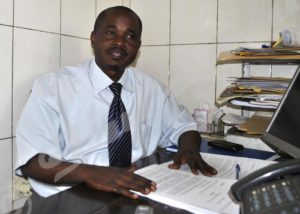 “The National Assembly represents the Burundian people who elected it and the vote reflects their will. We welcome the government’s decision because it was almost too late for Burundi to leave this body of contempt and injustice.
“The National Assembly represents the Burundian people who elected it and the vote reflects their will. We welcome the government’s decision because it was almost too late for Burundi to leave this body of contempt and injustice.
“For the legal representative of CAPES +, some major powers who claim to be models of good governance and human rights are afraid to cooperate with ICC that doesn’t dare to punish their abuses.
Vital Nshimirimana: “The struggle continues!”
 The legal representative of FORSC thinks it’s a suicidal decision and all Burundians must stay on their guard. The government wants to bury human rights by chasing witnesses or potential investigators. Burundians and the international community must rise as one man”, warns Nshimirimana. He says the current regime is becoming like a terrorist organization.
The legal representative of FORSC thinks it’s a suicidal decision and all Burundians must stay on their guard. The government wants to bury human rights by chasing witnesses or potential investigators. Burundians and the international community must rise as one man”, warns Nshimirimana. He says the current regime is becoming like a terrorist organization.
“But that does not discourage us and we look forward to the international commission of inquiry and, even if they do not come to Burundi, they can start by interrogating 300,000 refugees who are outside the country and get to point the finger at the guilty.”
Didier Reynders: “We regret these decisions!”
 Through its deputy prime minister and foreign minister, Belgium has also deplored the intention expressed by the Burundian authorities to withdraw from the Rome Statute of the International Criminal Court. “With these measures, the Burundian government undermines the credibility of its commitment to the respect of human rights and fight against impunity,” said Reynders. He also deplored the decision of the Burundian authorities to suspend their cooperation with the United Nations Office for Human Rights in Burundi.
Through its deputy prime minister and foreign minister, Belgium has also deplored the intention expressed by the Burundian authorities to withdraw from the Rome Statute of the International Criminal Court. “With these measures, the Burundian government undermines the credibility of its commitment to the respect of human rights and fight against impunity,” said Reynders. He also deplored the decision of the Burundian authorities to suspend their cooperation with the United Nations Office for Human Rights in Burundi.
Reynders therefore called on Burundi to reverse those decisions, to cooperate fully with the United Nations for human rights and its action within the framework of Resolution 2303 (2016) of the United Nations Security Council and Resolution of the Council of human Rights of the United Nations of September 27, 2016.
ANALYSIS
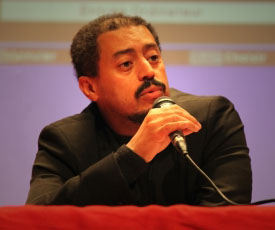
Thierry Vircoulon: “The regime did its best to isolate itself diplomatically.”
“Since the beginning of this crisis, the regime does its best to isolate itself diplomatically and place itself outside of the alliance of nations that constitutes the United Nations. In doing so, it may be part of the very special club of nations that barred themselves from the UN like Eritrea, North Korea, Syria, etc. “said Thierry Vircoulon, Senior Consultant for Central Africa at the International Crisis Group.
The government of Burundi is now pointed at by various reports that have been produced by different organizations. All the writers of these reports converge on a reality: the massive violation of human rights. “All authoritarian regimes without any objective argument against such accusations always resort to the strategy of the plot against their sovereignty,” said a political analyst. For him, this sovereignty is brandished to protect leaders accused of crimes, and not part of the population.
The strategy of the plot and national sovereignty are the only arguments of the regime. In fact, withdrawing from ICC may be counterproductive for the government. It can be more suspicious, as its refusal of the inquiry.
“Obviously, denying the commission of inquiry only confirms its guilt to the world but, as I said before, the speech of the regime is a trap to the regime itself,” says Vircoulon.
Moreover, he goes on to say that the plan is a reflection of the president: “He decided to have only very limited interaction with the external world (he neither attends regional meetings nor goes outside Burundi). By falling back on itself, the regime wrongly believes it is reducing the external echo of its crimes. ”
The question is to ask how far the government of Burundi can go, trying to cover its tracks and how far it can extend its withdrawal. By withdrawing from the Rome Statute, the Burundian government ignores all other treaties on human rights: the Universal Declaration of Human Rights, the African Charter on Human Rights, etc.
The arguments of MPs…
“It’s time Burundi withdrew from ICC”, said Gélase Ndabirabe, MP from the ruling CNDD-FDD party. Zénon Ndaruvukanye, another member of the same party added: “This is the right decision as ICC is biased.”
“What we’re doing today is accomplishing God’s will. Whoever does not vote for this bill will answer before God,” said MP Persile Mwidogo from CNDD-FDD during the plenary session. In her argument, she delivered some biblical verses to convince other MPs.
Former Senate speaker, MP Gabriel Ntisezerana urged other African countries to follow Burundi in the withdrawal process from ICC. He said: “the International Criminal Court is a tool used by the great world powers.”
MP Bernard Ndayisenga, elected in Bujumbura the capital, asked why Burundi withdraws from ICC while it may need the latter in the future. He got no answer.
Fabien Banciryanino, MP from UPRONA party and elected in Bubanza Province asked during the plenary session if the withdrawal from the Rome Statute will end the crimes that are being committed.”It’s the same for the suspension of cooperation and collaboration with OHCHR; does this mean that human rights are respected? It should be a secret vote. Some MPs think like me but they are afraid of saying what they feel. ”
Upon these words, the speaker of the National Assembly, MP Pascal Nyabenda asked, smilingly and teasingly if his attitude were not so suicidal, given these statements.
There was a burst of laughter in the Parliament.
It was unfortunately cooled by this question from MP Godeberthe Hatungimana, elected in Rutana Province: “What shall we say to citizens who have lost their relatives and relied on ICC?”
Minister of Justice, Aimée Laurentine Kanyana, said “the opening of a preliminary examination by ICC has created a kind of panic among Burundians.” “But the opening of investigations against the leaders of some countries by ICC is under the influence of great powers,” she said.
She explained that among the reasons for the withdrawal is that ICC has become an instrument of pressure on poor countries’ governments.
For Edouard Nduwimana, the second vice president of the National Assembly, ICC is not a court of justice but a political body. ”
As the” vox clamentis in diserto,” an MP elected in Muyinga clamored that ICC is yet the last rampart against bad governance in Africa.
But another MP went further by asking the parliament to “review all the ratified texts which can violate the sovereignty and enslave Burundi”. Térence Manirambona, a pro- Rwasa MP, raised the question of whether to withdraw from the Rome Statute is not to foster impunity.
According to André Ndayizamba, an MP from UPRONA, “it’s not a secret that governments are the most violators of human rights in Africa.” For him, withdrawing from ICC is a political and diplomatic mistake.”
What about the “withdrawal”?
In February 2016, following the initiative of Kenya, AU member states met in Addis Ababa, the headquarters of this organization to discuss the withdrawal of African countries from ICC. But the withdrawal cannot be made collectively by all States because membership was made individually and the pull out is individual. The withdrawal is the right of Burundi, as it has willingly adhered to ICC, it may willingly decide not to be a member, it is a matter of choice. But the withdrawal from ICC would not allow Burundi, theoretically, to evade international justice. ICC cannot certainly investigate on its own initiative on non-member countries, but may do so if the UN Security Council authorizes so. In addition, the Rome Statute, the founding treaty of ICC, states that “the withdrawal shall take effect one year after the date on which the notification was received, unless the latter provides for a date ‘and’ doesn’t affect the continued examination of cases that the Court has already begun to consider before the date it takes effect.”


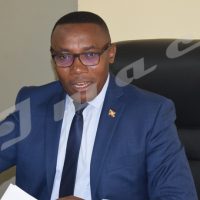
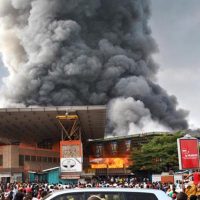
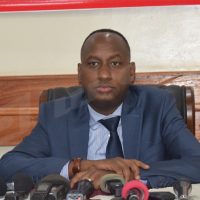














 IWACU Open Data
IWACU Open Data

